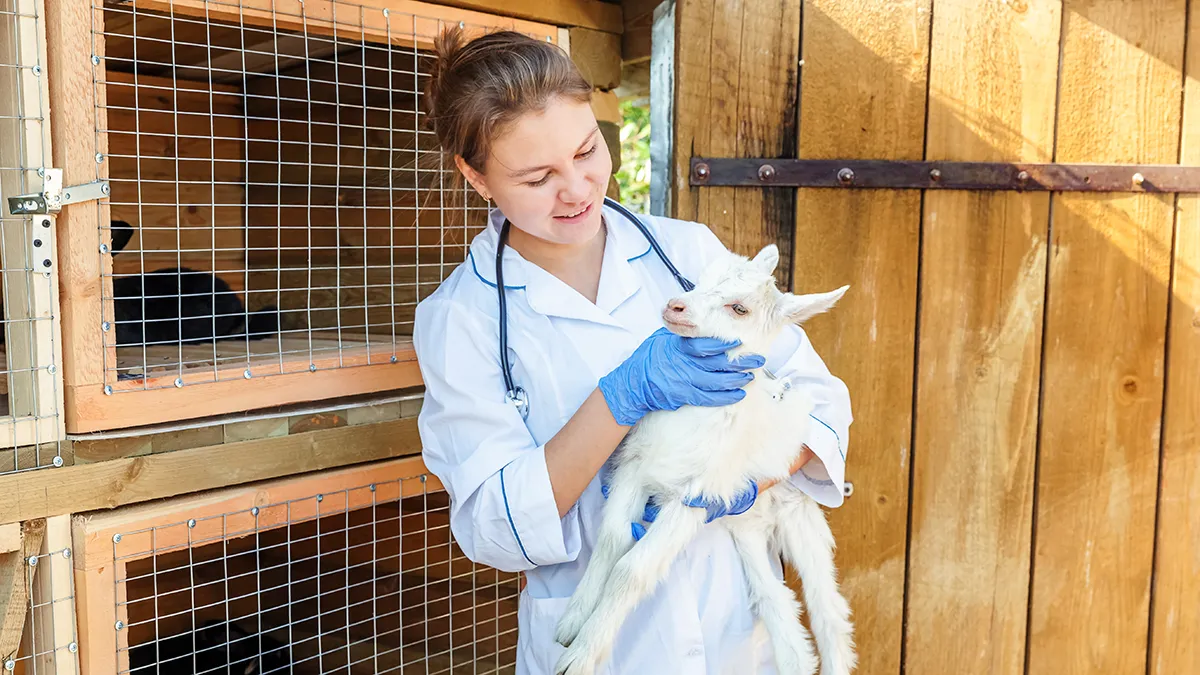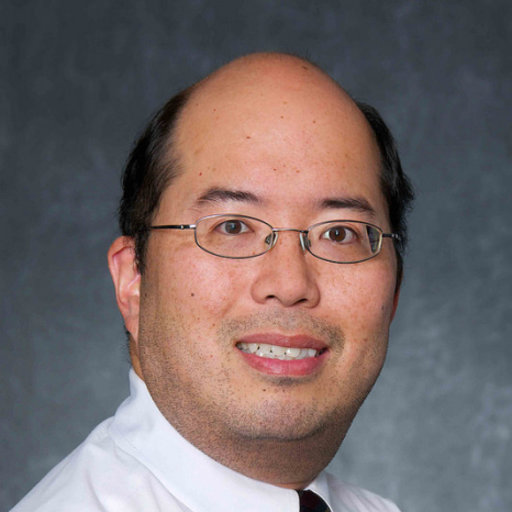Last Updated on November 13, 2024 by Laura Turner
Dr. María Juárez Byrd spoke with SDN about the University of Illinois Vet Med Master of Veterinary Science Program, which is designed to help prepare students for veterinary school. She is a veterinarian who has a special interest in treating exotic and small animals.
Since she was six years old, Dr. Byrd has had a passion for caring for animals, which she nurtured through frequent trips to the Kansas City Zoo and her own home “zoo” – which included dogs, turtles, frogs, beta fish, guinea pigs, a bunny, bearded dragons, a water dragon, and two secret mice she smuggled into her room without her parent’s knowledge.
In 2016, Dr. Byrd completed her B.S. in Animal Science at the University of Missouri, where she studied computational neuroscience and domestic animal husbandry. She then earned her DVM in 2021 from Cornell University’s College of Veterinary Medicine, focusing on exotic animal medicine.
Outside of her studies, Dr. Byrd volunteered at the Janet L. Swanson Wildlife Hospital, where she cared for native wildlife such as bald eagles, ospreys, porcupines, turtles, deer, squirrels, and other animals. In her final year of veterinary school, she interned for three months at the Association of Zoos and Aquariums Reproductive Management Center and two months with the University of Missouri Comparative Medicine Program. She also completed two months of exotic-focused clinical rotations at Cornell, where she researched the husbandry and physiology of rare species, recommended follow-up plans, assisted in surgeries and anesthesia, and comforted hospitalized patients.
She is currently an exotic and small animal veterinarian and an Instructor and Pre-Vet Mentor For the University of Illinois Urbana Champaign Certificate of Veterinary Science and Master of Veterinary Science programs.
What else should we know about your professional journey?
Dr. Byrd: As a veterinary student, I dedicated a summer to working with the Cornell College of Veterinary Medicine Admissions Committee, analyzing the reliability of admissions criteria across U.S. medical, veterinary, and dental schools. This ignited a profound interest in the selection process for future healthcare professionals. Now, I’m driven to share my knowledge and experiences with aspiring veterinarians. My goal is to ensure that these students are well-informed about crucial opportunities that can enhance their applications and align with their career aspirations. By offering guidance on key aspects of the application process, I aim to empower pre-vet students to present their strongest possible candidacy.
What are the biggest challenges or problems facing higher education and training today? Where do you see higher education in ten years?
The pipeline from high school to veterinary school presents a critical challenge in our field. While veterinary school applicants are evaluated based on shadowing experience, extracurricular involvement, and academic rigor, this system inadvertently disadvantages students from rural or low-income backgrounds who often lack access to these opportunities. This disparity creates a self-perpetuating cycle: students from underserved areas struggle to compete in the application process, leading to fewer veterinarians from these backgrounds, and ultimately exacerbating the shortage of veterinary care in rural and low-income communities.
Our virtual programs help bridge this gap. By providing high-quality mentorship and guidance to students who typically lack pre-veterinary resources, we enable a broader scope of talented, passionate individuals to pursue this vocation.
Briefly describe the Master of Veterinary Science Program.
The University of Illinois Master of Veterinary Science degree offers a comprehensive and flexible program with interdisciplinary elective courses available across various units on campus. Students can choose from courses in areas such as companion animal nutrition, livestock operations management, education, and more. It is available both online, with a flexible timeframe tailored to students’ needs, and on-campus, which can be completed in one year.
Further Reading on Veterinary Medicine
Discover additional admissions resources and expert opinions with these selected articles from our archives.
What mentoring exists for students, including after they finish the program? Are there any advantages when applying to a future professional program?
During the program, students have the option of working one-on-one with a faculty member to evaluate their graduate school application and review the objective and subjective components of these applications. The pair work together to identify institutions the student can apply to and help the student effectively articulate their unique perspective and values in their application.
What do you tell teachers and family members about the benefits of your program?
Our programs help transition students to the intensity of veterinary school courses with an active focus on reducing the stress of evaluations, encouraging students to enjoy the learning process while they develop the critical thinking skills required to excel in graduate or professional school. Students are tasked with learning anatomy, physiology, and pathophysiology by working through cases of real patients and clients. Beyond mastering foundational knowledge of anatomy and physiology, the students practice communication skills, spectrum of care, and clinical reasoning required of veterinary professionals.
Are students given insights into the different careers beyond Veterinary Medicine?
Yes, faculty dedicate time throughout the course to one-on-one meetings with students to determine what the student’s professional goals are and whether veterinary medicine is the best vocation for them. These conversations are opportunities to explore alternative STEM and animal care careers. Some of my favorite conversations have been when students encountered a new career opportunity that better matched their strengths and interests. There are millions of ways to solve problems and save animals, and helping students explore those options is incredibly fulfilling.
Where do you want to be professionally in 10 years?
I think I’m living the dream already. I would love to become a board-certified specialist in exotic animal medicine, I hope to continue my in-person work (surgery and medicine) as well as virtual work (teaching and mentorship) for the next 100 years or so!



